The Great Garrick

Brief Synopsis
Cast & Crew
James Whale
Brian Aherne
Olivia De Havilland
Edward Everett Horton
Melville Cooper
Lionel Atwill
Film Details
Technical Specs

Synopsis
Before David Garrick, the famous eighteenth century English actor, is to make a guest appearance at the Comédie Française , the French actors hear rumours that he has said he will teach them the art of realistic acting. Determined to teach him a lesson, they take over a roadside inn. When Garrick arrives at the Adam & Eve Inn, however, he instantly recognizes the staff and guests of the inn as actors by their conventional gestures, and decides to play along to see what will happen. During dinner, an attractive young woman arrives at the inn and when the innkeeper tries to send her away because the inn is full, Garrick, thinking this is all part of the joke, offers to give up his room and bunk with Tubby, his servant. While the actors continue to stage duels and mad scenes designed to frighten Garrick, he flirts outrageously with the woman, Germaine. She, however, is not one of the actors, but a runaway countess and she is swept off her feet by his attentions. Finally, Garrick turns one of their tricks against the actors, and after they realize that he knows what they are doing, he attacks their stilted acting styles. He is especially harsh with Germaine. Impressed, the actors insist that he come to Paris after all. Once in Paris, he looks for Germaine, and finds out for the first time that she is not one of the troupe. Upset because he thought real life was bad acting, Garrick refuses to perform until he finds her. Happily, Germaine is in the audience and smiles her forgiveness from the boxes. Garrick then goes on to present a brilliant performance of Don Juan .

Director
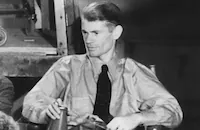
James Whale
Cast
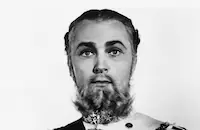
Brian Aherne
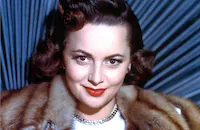
Olivia De Havilland

Edward Everett Horton

Melville Cooper

Lionel Atwill
Luis Alberni
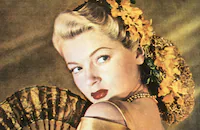
Lana Turner

Marie Wilson

Linda Perry
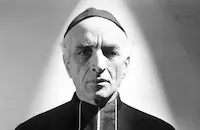
Fritz Leiber

Etienne Girardot

Dorothy Tree

Craig Reynolds
Paul Everton
Trevor Bardette
Milton Owen

Albert Van Dekker
Chester Clute
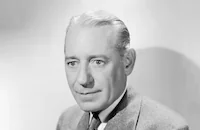
Henry O'neill

E. E. Clive
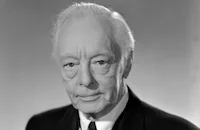
Harry Davenport
Paul Everton
Jack Norton
Leyland Hodgson
Fritz Leiber Jr.
Corbet Morris
Olaf Hytten
Constance Pellissier
Connie Leon
Hannam Clark
Ben Welden
Jack Latham
George Bunny
Gennaro Curci
Elspeth Dudgeon
Crew
Milo Anderson
William Cannon
Adolph Deutsch
Leo F. Forbstein
Anton Grot
Ernest Haller
Rowland Leigh
Mervyn Leroy
Warren Low
Sherry Shourds
Ernest Vajda
Perc Westmore
James Whale

Videos
Movie Clip



Trailer
Film Details
Technical Specs

Articles
The Great Garrick
The charming story and overall tone of this movie convey the magic of theater, and beautiful costumes and sets go a long way toward this end. Variety's review lauded the picture, singling out Anton Grot's art direction as some of the best "which the screen has yet shown." But the critic was not so gung-ho on the movie's commercial prospects. "The Great Garrick is a film worth the exacting effort which unquestionably was required in its making. Artistically, first class; commercially, a question mark." Sure enough, the picture flopped, much to Jack Warner's annoyance.
The Great Garrick was directed by James Whale, on loan-out from Universal, and produced by Mervyn LeRoy - or as the credit reads, "personally supervised by Mervyn LeRoy." It was LeRoy's fourth independent production at Warner Brothers. The screenplay was by the Hungarian Ernest Vajda, who had written such film gems as The Love Parade (1929) and The Smiling Lieutenant (1931). In a nod to the theatrical nature of the story, his screen credit reads "a play for the screen."
As Garrick, Brian Aherne gives a bravura performance in a role which was written specifically for him. Vajda had originally proposed writing The Great Garrick as a stage play for Aherne, but an amusing chain of events led to a screenplay instead. Aherne recounted in his memoirs that after Vajda pitched him the story in his Beverly Hills living room (acting out all the roles with gusto), Aherne "agreed at once to take the play, and [Vajda] rushed home in great excitement to put it down on paper. Unfortunately, on the way he stopped in at a cocktail party where, after a couple of drinks, he had a fine time retelling the story, with embellishments no doubt, to Mervyn LeRoy. Without hesitation, Mervyn offered to buy it for a movie, and without thinking, Vajda accepted.
"Time went by and he failed to deliver a script to either of us. Mervyn pressed him until finally he produced an outline which bore little relationship to the story we had all enjoyed. It seemed he had forgotten it! We all had to remind him of pieces of his own dialogue. I lost my play, and while Mervyn did manage to make a picture for Warner Brothers, the story was never as good as it had been at the first telling... The picture was to flop at the box office - so badly, in fact, that Jack Warner [said] he never wanted to see me on the lot again. He did, however, in the following year" (when Aherne co-starred in Juarez, 1939).
Of his co-star Olivia de Havilland, Aherne wrote that she was "young and entrancing" and that he threw a party on the set for her twenty-first birthday. "I little thought that I would one day marry her younger sister, Joan Fontaine." Aherne doesn't mention that he actually dated de Havilland briefly before moving on to Joan, whom he married just two years later.
This was 17-year-old Lana Turner's third film appearance. She plays one of the French actors disguised as a barmaid and has three lines of dialogue - and quite a bit of giggling. Mervyn LeRoy took her under his wing and soon brought her along to MGM, where he supervised her burgeoning career. The Great Garrick also marked the screen debut of Albert Dekker (here credited as Albert Van Dekker), soon to become a respected character actor.
Producer: Mervyn LeRoy
Director: James Whale
Screenplay: Ernest Vajda
Cinematography: Ernest Haller
Film Editing: Warren Low
Art Direction: Anton Grot
Music: Adolph Deutsch
Cast: Brian Aherne (David Garrick), Olivia de Havilland (Germaine de la Corbe), Edward Everett Horton (Tubby), Melville Cooper (M. W. Picard), Lionel Atwill (M. Beaumarchais).
BW-78m.
by Jeremy Arnold

The Great Garrick
Quotes
Trivia
The play opened in London, England, UK on 18 May 1937.
Henry O'Neill is listed in studio records for the role "Sir Joshua Reynolds". Although the character is mentioned, he is not seen in the movie.
Notes
Variety gives the running time at the film's preview in Hollywood as 82 min. Brian Ahern later married Olivia De Havilland's sister Joan Fontaine. This was Albert van Dekker's film debut. He later changed his name to Albert Dekker. According to modern sources, the film did poor business despite favorable reviews.















